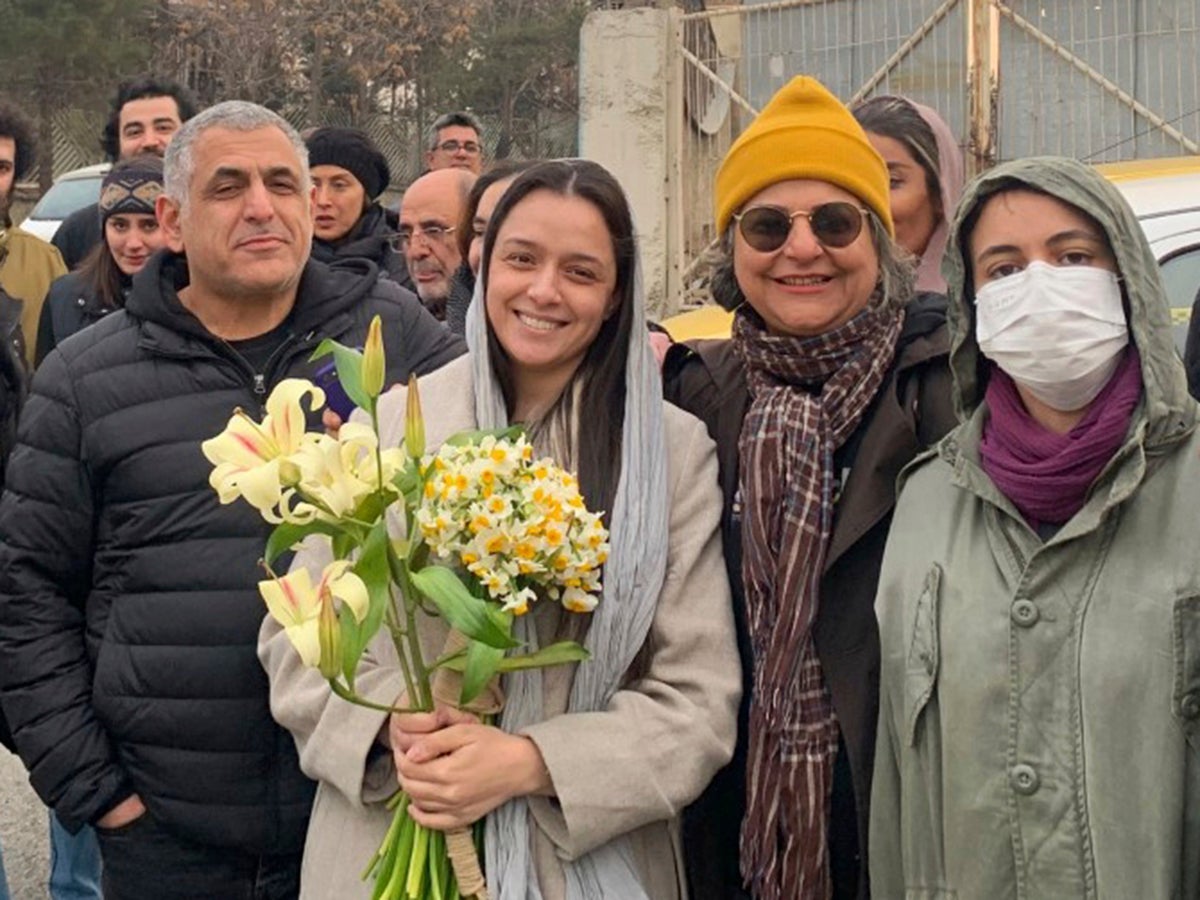
One of Iran’s top actors has been freed from prison more than two weeks after being jailed for speaking out against a crackdown on anti-government protests.
Taraneh Alidoosti was released on Wednesday afternoon from Tehran’s Evin Prison. Her mother, Nadere Hakimelahi, had earlier said she would be let out in a post on Instagram and it was reported by the semi-official ISNA news agency.
Alidoosti was the female lead in Asghar Farhadi’s Oscar-winning 2016 film The Salesman. She was arrested at her home 17 December after she spoke out publicly about the execution of Mohsen Shekari, a 23-year-old charged with injuring a member of Iran’s security forces during a protest.
Shekari was executed on 9 December after being charged by an Iranian court with blocking a street in Tehran and attacking a member of the security forces with a machete. A week later, Iran executed a second prisoner, Majidreza Rahnavard, by public hanging. He had been accused of stabbing two members of the Basij militia, which is leading the crackdown.
Alidoosti had posted at least three messages in support of the protests on Instagram before her account was disabled.
Outspoken since the start of the protest movement, her arrest prompted outrage in Iran and many other countries. She was reportedly released on bail equivalent to about £200,000. Iranians typically must put up the deed of their own or a family member’s home as collateral.
The regime of Ali Khamenei, the supreme leader, has been struggling to silence well-known Iranians in the fields of art and sports from publicly supporting the protest movement. Authorities recently forced the return of a Dubai-bound passenger plane carrying the wife and daughter of famed Iranian footballer and supporter of the protesters Ali Daei, preventing them from traveling abroad.
High-profile Iranians held in prison are often released on bail quickly. The length of Alidoosti’s detention suggests Iran’s rulers wanted to make an example of her, sending the message that it would harshly punish even the most well-known luminaries, much less ordinary Iranians caught up in the protests.
Late on Tuesday, security forces arrested some 30 people in the small Iranian Kurdish town of Javanrud, a town of near-constant nightly protests.
The Khamenei regime’s highest court on Tuesday also affirmed death penalty sentences for two more protesters, Mohammad Mahdi Karami and Seyed Mohammad Hosseini. Each was accused of killing members of the security forces, but the lawyer for one of the condemned said his client had alleged his confession was extracted under torture.







